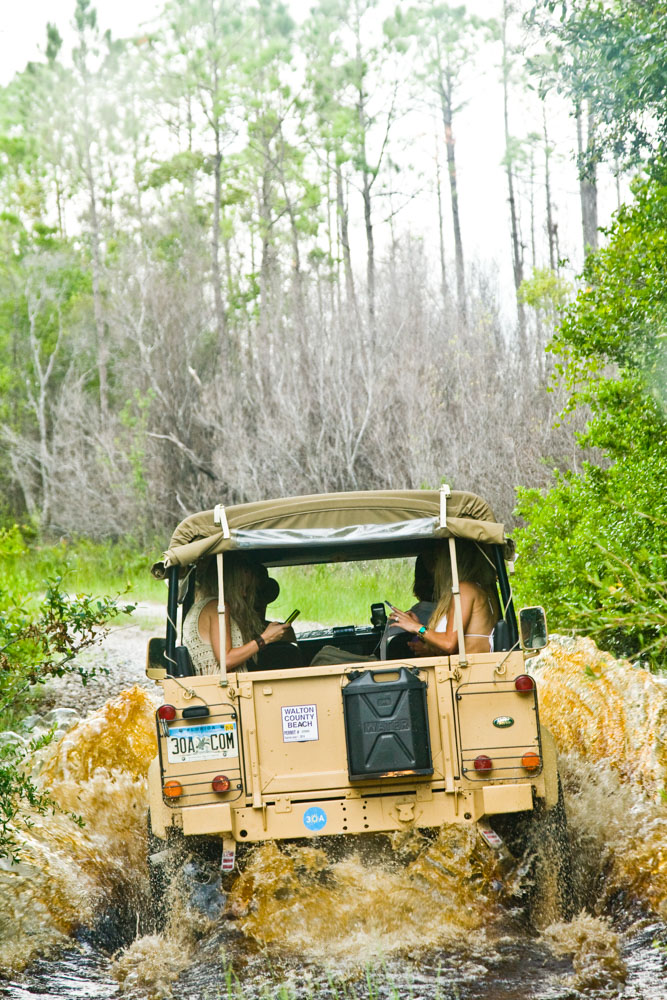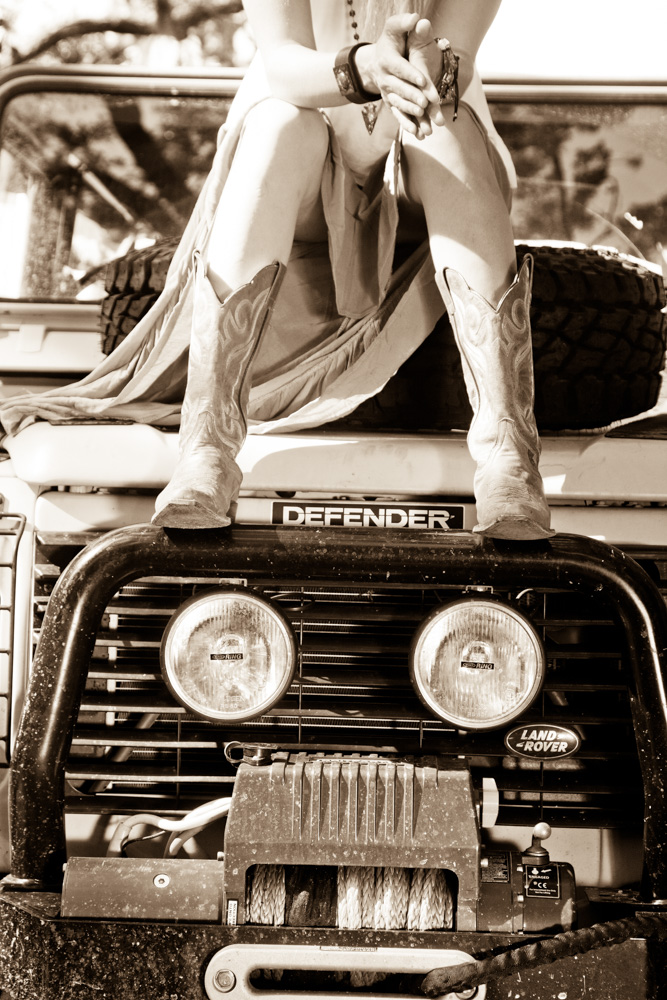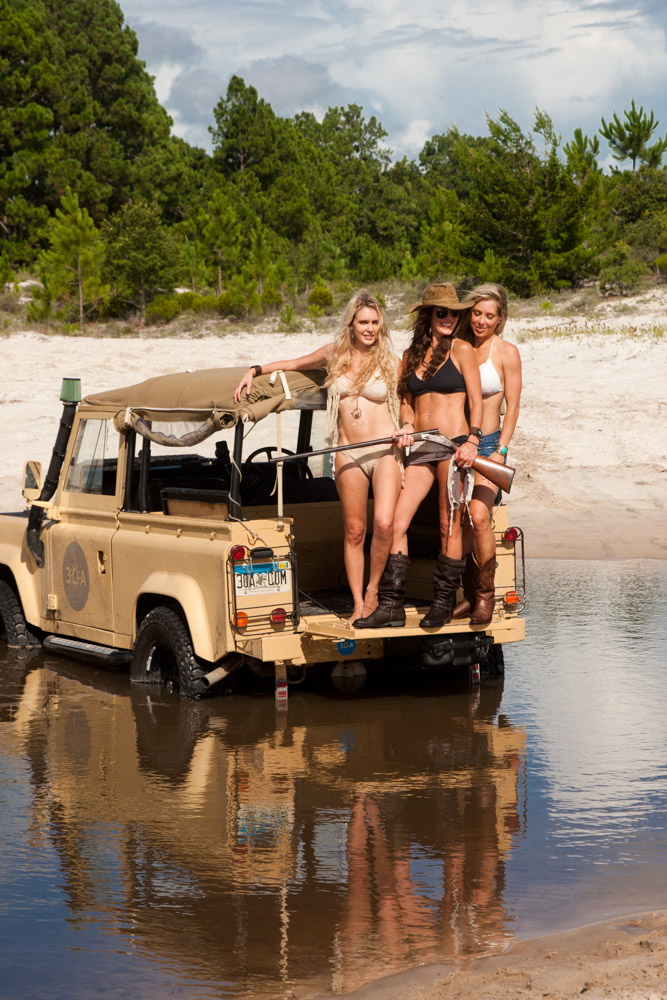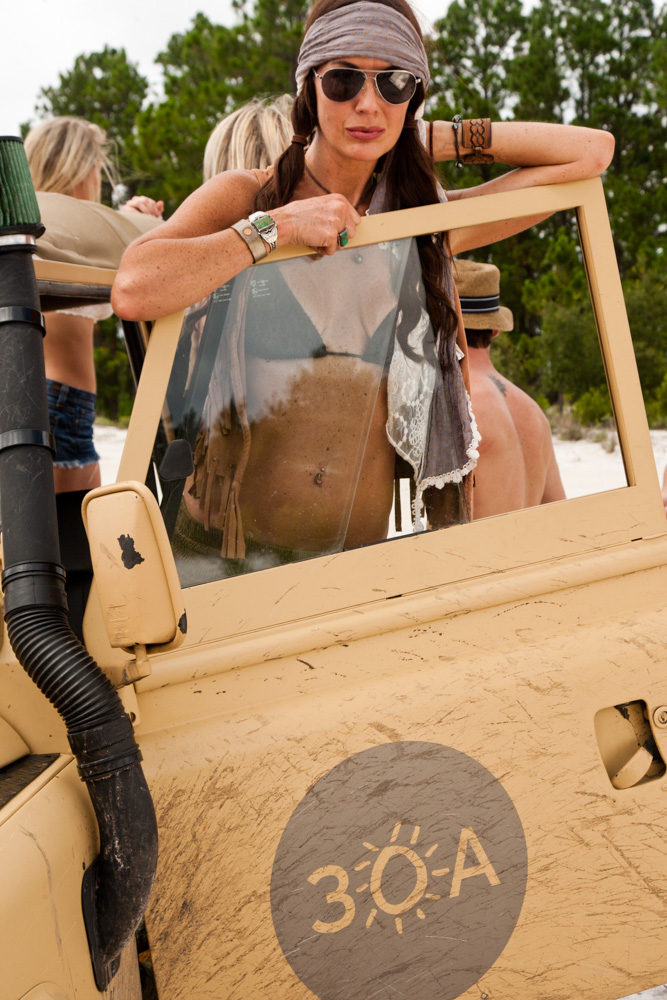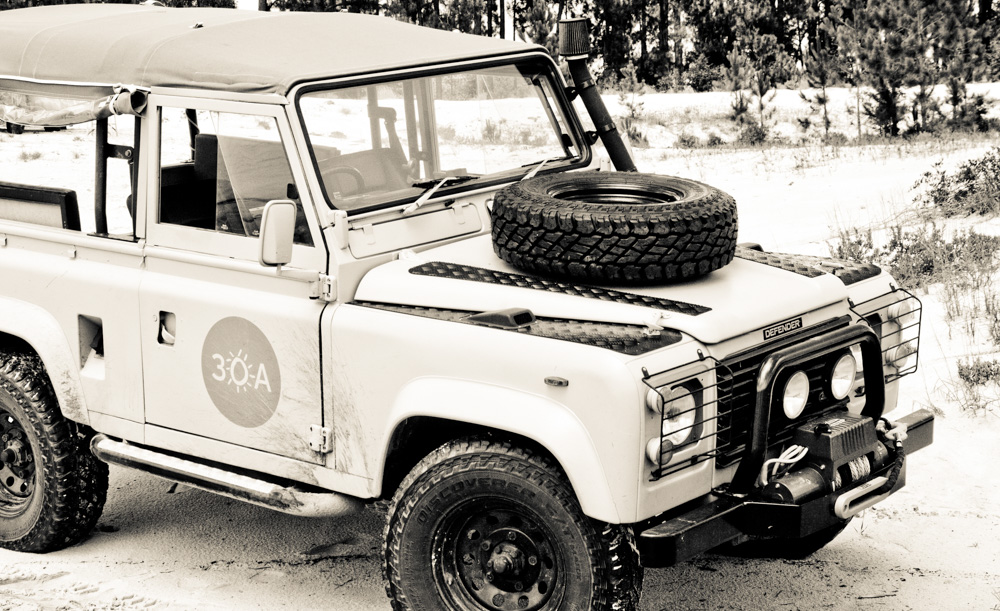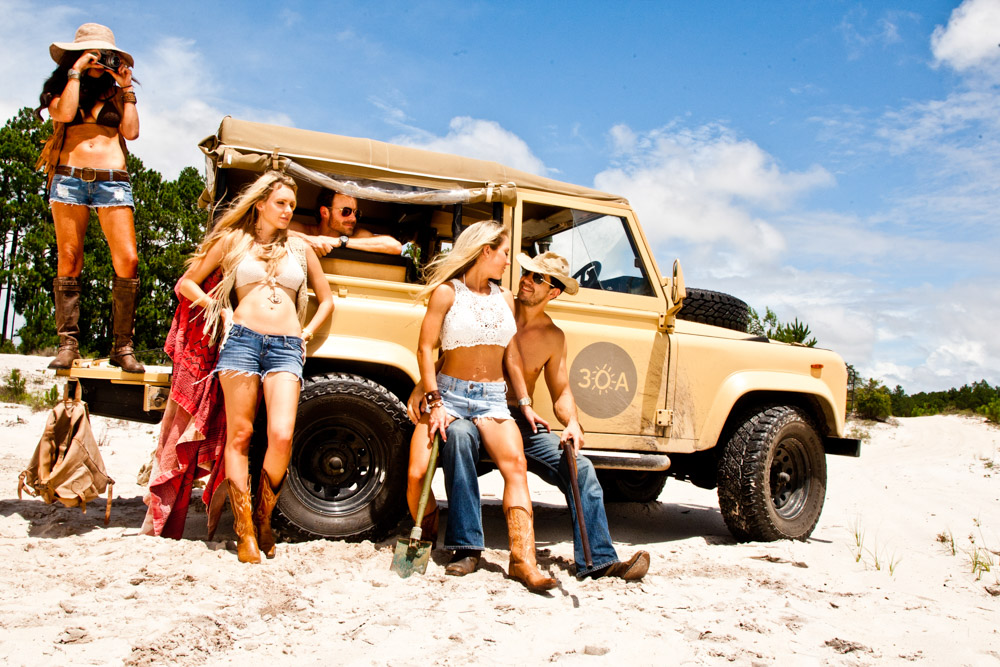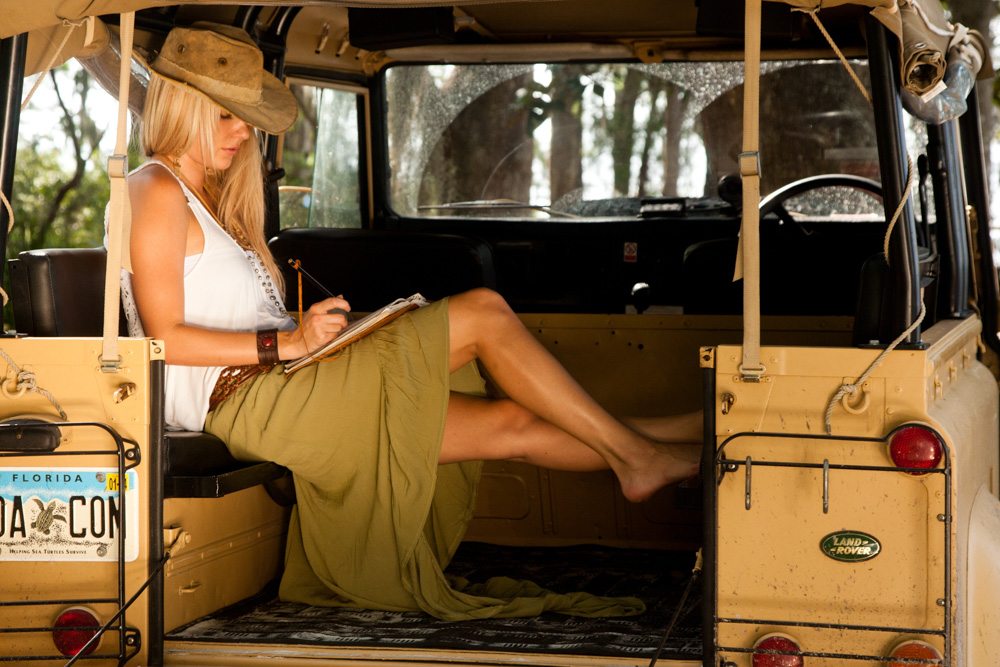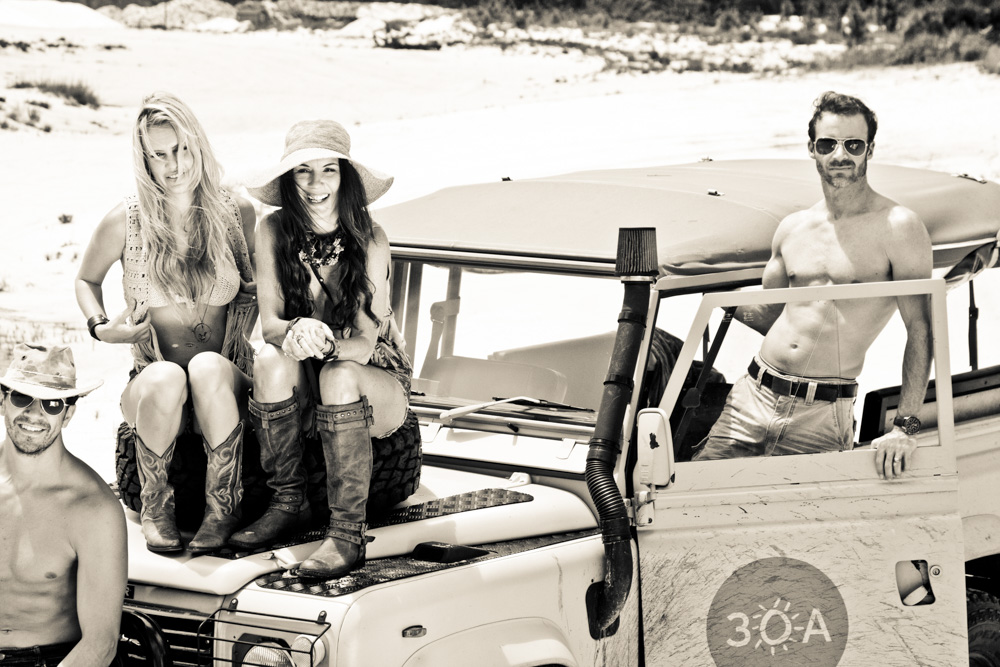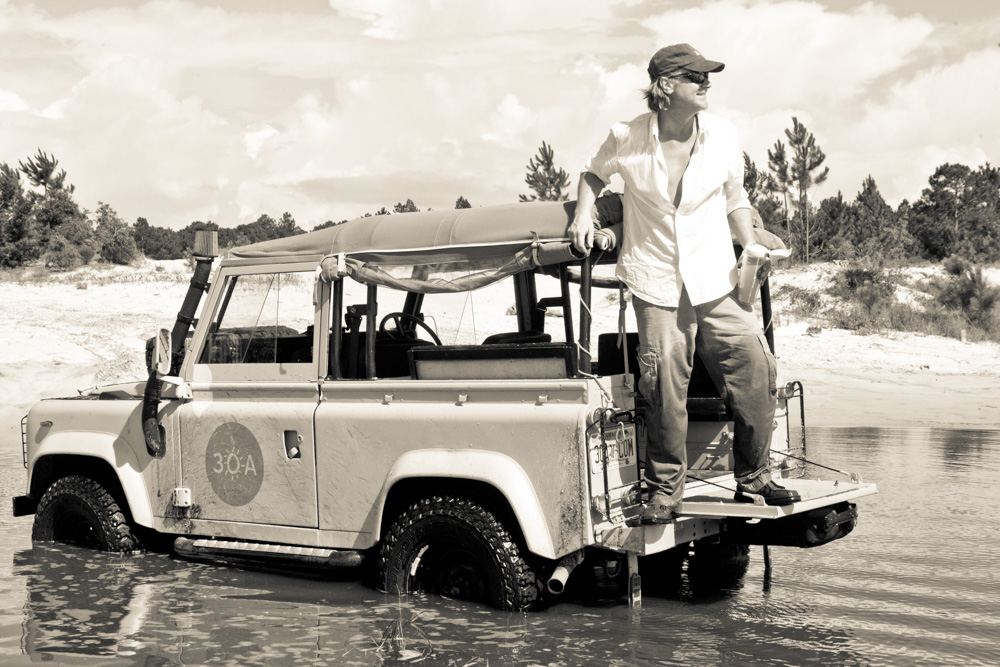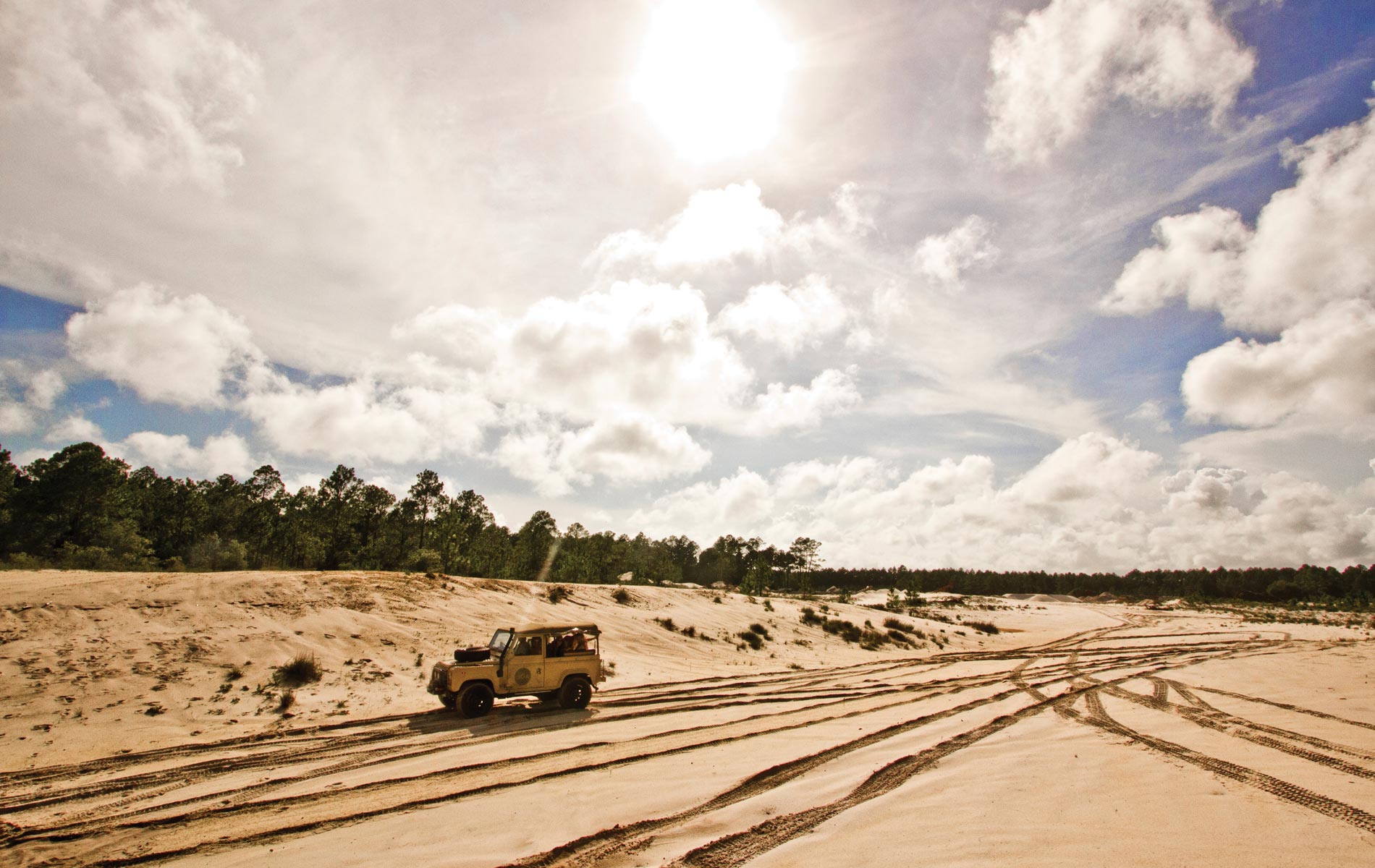
vie-magazine-land-rover
Back from the Dead
Dying Defender Finds Life off the Beaten Path
By Mike Ragsdale | Photography by Dawn Chapman Whitty
I was infected on New Year’s Eve 2011.
It happened in a cave in Göreme, Turkey, a few hundred miles from the Syrian border. While our kids were busy Skyping with their friends back home (it was a very pleasant, Wi-Fi-enabled cave), Angela and I were throwing back shots of Turkish raki with Brandon and Julie Halstead, two friends from Alabama whom we hadn’t seen in nearly twenty years.
Snow dusted the surreal Tatooine-looking sand spires that surround the tiny town, and despite a strong temptation to toast the magic midnight hour in some local haunt, we instead bunkered into our stone lair for the night, determined to catch up on lost years.
I did not know that Brandon was a carrier.
Years before in Tuscaloosa, Brandon had quickly become my favorite college bartender. In fact, we had become such good friends that I eventually landed a tuxedoed role in Brandon and Julie’s wedding (sad testimony to just how much time I spent in bars).
Now a lieutenant colonel in the Air Force, Brandon had once been stationed in Turkey for three years. (I assume he’s in the United States Air Force, but I neglected to ask that question.) When he saw on Facebook that our family was passing through the region on an around-the-world adventure, he knew that Göreme would make an ideal, if unlikely, spot for a long-overdue reunion.
Within the toasty confines of our cave hotel, it wasn’t long before Brandon pulled out his iPad and, beaming like a proud father, began flicking through photos of his baby: a 1985 Land Rover Defender 90 (“D-90”). Like contemporary cavemen telling stories around some technological campfire, we basked in the glow of his iPad screen, wildly gesturing, nodding, and grunting at vibrant images of colorful Defenders in distant lands.
Rover Porn, Julie called it.
I’ve never been much of a car guy. I honestly didn’t even know what a “Defender” was. And yet I was instantly captivated by its confident air of adventure. There was a shovel and a pickax fastened to his hood. A pick … and a shovel … on the hood.
This was Indiana Jones’s ride—or at least a strong Mario Kart contender.
The infection was instant and quite painful.
Like some shady drug-dealing middleman, Brandon told me he “knew a guy” who found and fixed up ex-British military Defenders, and that importing one to the United States shouldn’t be a problem—that is, if we followed the precise legal steps that Brandon had painstakingly researched and refined over time. Perhaps it was the raki (an anise-flavored clear liqueur that turns milky white when mixed with water), but this all sounded perfectly reasonable to me. After all, Brandon isn’t just a lieutenant colonel, he’s a JAG—an air and space lawyer, but a lawyer nonetheless. I mean, surely importing a Defender into the United States couldn’t be as legally complicated as protecting orbit rights-of-way for international military satellites, could it? (Could it? I’m asking.)
A few days later we parted ways. Brandon and Julie returned to their home in Germany (I really need to pin down which military he serves), while our family moved on to India. As the weeks and months passed, however, I just couldn’t delete that explicit Rover Porn from my memory. I bookmarked Brandon’s Facebook page and stalked photos of his growing fleet of Landies like a teenage boy with an unhealthy crush. Like a carrier of some rampant zombie contagion, Brandon had now passed on his brain disorder to me.
Months later, our global circumnavigation complete, our family returned home to Scenic Highway 30-A, a hidden strand of quaint beach towns along Florida’s Gulf Coast. I’d sold my car before we left on our big trip, so now I found myself in dire need of transportation.
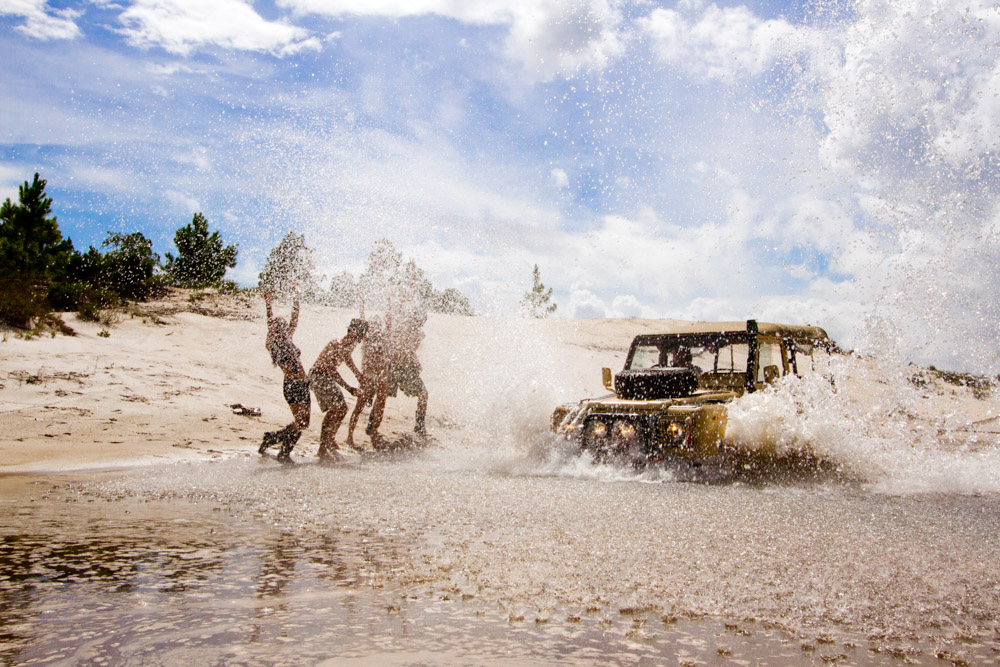
I honestly didn’t even know what a defender was. And yet I was instantly captivated by its confident air of adventure.
My fevered brain craved something uncomfortable, with no air conditioning or reclining seats. Or air bags. It needed to be radically unsafe.
It demanded a five-speed manual transmission, preferably on the wrong side. Something that permanently reeked of sweat, oil, and diesel fumes. Something that consumed hard-to-find parts as if they were breakfast cereal. Something that would require months of restoration work, reams of bureaucratic paperwork, and some sort of financial partnership with a decent mechanic. You know—something practical.
So I called my bartender.
In August 2012, Brandon e-mailed me the good news. He’d found an old D-90 in great shape, sitting dormant on some European military lot. He e-mailed me a few glimpses. While it appeared to be surrounded by countless other military vehicles, it looked very much alone. Abandoned. Forgotten.
The scant records showed that it was originally put into Ministry of Defense (MOD) service on August 29, 1986 (Registration ID: 61KF77). The last unit it served was the Royal Wessex Yeomanry, an armored regiment of the British Territorial Army. It had probably never left the British mainland, which helped explain why it was in such good condition for its age. There was a 200Tdi (turbocharged direct injection) diesel engine under the hood, something that Brandon had painstakingly searched for.
I honestly didn’t even know what a “Defender” was. And yet I was instantly captivated by its confident air of adventure.
He was perfect. I was head-over-flip-flops in love. I committed quickly and completely, and like some messed-up Match.com mashup between man and machine, we began our long-distance bromance, exchanging photos and pleasantries.
But I knew that I couldn’t suffer my newfound condition alone. Deep down, like any self-respecting zombie, I knew that I had an obligation to infect others.
Fortunately, here in Florida’s Panhandle, I run 30A.com, a website that’s become a hub for fans of our gorgeous white-sand beaches and of the laid-back coastal lifestyle that locals enjoy here. Even though our town has only twelve thousand full-time residents, our 30A Facebook page alone has two hundred fifty thousand fans.
- Models from left to right: Bridgette Mitchell, Ashley Johnson, Shannon Johnson, Kasie Petit, Louis Petit
So I began sharing photos of my overseas love interest with thousands of friends and fans. I posted polls asking for advice on which features to add and which customizations to make. Tens of thousands of people chimed in, all eager to help steer us in the right direction.
Directly because of that fan feedback, I added things like a twelve-thousand-pound plasma rope winch, to help rescue any overzealous out-of-towners who got stuck in our sugary sand. I added a rear-mounted British MOD water can to amply douse beach bonfires. And we added a snorkel … well, mostly because it looks cool. We’re at the beach, so we decided to go topless, stripping off his tattered NATO-green canvas and adding a heavy-duty cage across the rear.
Then I asked fans what color I should paint him—but I simply couldn’t bring myself to go with their overwhelming first choice: “30A Blue.” Painting him Gulf of Mexico turquoise just didn’t seem true to his military heritage. Plus, out of the thousands of Facebook comments on this polarizing topic, one post in particular ricocheted around in my head like an errant artillery shell:
“Trust me,” he wrote. “If you paint it a girly color, it will never run right again.”
So, I made an executive decision and opted for their second-most-popular color choice: Sand (technically, “Light Stone” on the British MOD’s official color palette).
I even asked fans what we should name him. They came up with dozens of clever suggestions (Sandy, Sonny, Winston, etc.), but ultimately they voted for Truman, after our community’s most famous—if fictional—resident.
During those long desperate months of transatlantic restoration work, I did my best to ignore the Facebook chatter that said that I was “crazy” and that importing Defenders into the US was “impossible” because of our strict safety and EPA laws. I pretended not to notice things like the propaganda perpetuated by the US Department of Homeland Security or YouTube videos of Defenders being crushed upon entry.
And yet, despite a few nail-gnawing bureaucratic setbacks, Truman eventually cleared US Customs in Jacksonville and was ushered onto a flatbed truck. Then on March 29, 2013—after eight long months of waiting—Truman finally rolled into my driveway in Santa Rosa Beach, where he’ll enjoy the rest of his days basking in our Florida sunshine.
Retirement has been kind to Truman. He spends a lot of time on the beach and enjoys off-roading through our twenty-five thousand acres of pristine state forest. He’s already become something of a local celebrity in our sleepy little beach town. He loves posing for photos and riding in local parades. He enjoys frequent spa treatments at the garage. Like the bartenders of my youth, my mechanic is now my best friend. We spend a lot of quality time together. (I wonder if he has any wedding plans.)
- Mike Ragsdale and Defender “Truman”
I added a rear-mounted British MOD water can to amply douse beach bonfires. And we added a snorkel … well, mostly because it looks cool.
The very first Land Rover—named HUE 166—rolled off the assembly line in 1948. Orville Wright and Gandhi both died that year, and Harry S. Truman was President. Jackie Robinson had recently become the first African American to play Major League Baseball, and Chuck Yeager had just broken the sound barrier. Miracle on 34th Street was the big hit in movie theaters.
Sadly, this year, Land Rover officially announced the Defender Apocalypse: After nearly seventy years, the last Defender is slated to roll off the production line in December 2015. Its emissions are deemed unclean. Its aluminum shell is considered unsafe. Never mind that they’re safer than motorcycles or scooters and that recycling old cars is far better for the environment than crushing them in a landfill and then constructing something entirely new from scratch.
These icons of adventure and global exploration have fallen victim to emissions regulations, air bag requirements, and political correctness. There’s just not much room for Indiana Jones, Rick Blaine, Ernest Hemingway, or T. E. Lawrence in a world absorbed with hand sanitizer, carbon offset points, and water vapor cigarettes. We’ve become averse to adventure and allergic to ourselves.
Is this the death of the Defender? Perhaps.
But even if new Defenders will no longer be born into this increasingly risk-averse world, HUE 166’s intrepid spirit is simply too contagious to suppress. It’s a disease that cannot be cured. And those of us who have been infected will still be here—bringing old Defenders back from the dead, one at a time.
— V —
Share This Story!
KEEP UP WITH THE LATEST STORIES FROM VIE



